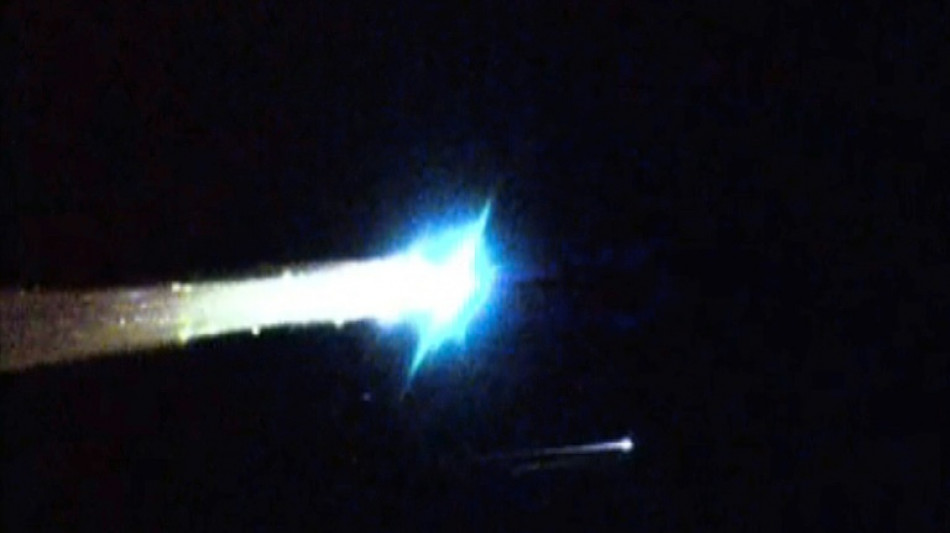
-
 McCullum wants to stay as England coach despite Ashes drubbing
McCullum wants to stay as England coach despite Ashes drubbing
-
EU slams China dairy duties as 'unjustified'
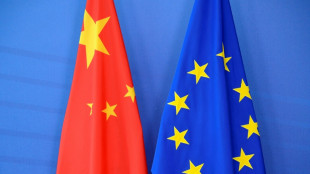
-
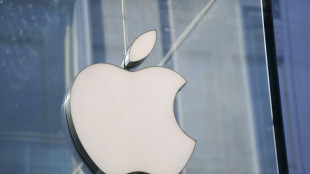 Italy fines Apple nearly 100 mn euros over app privacy feature
Italy fines Apple nearly 100 mn euros over app privacy feature
-
America's Cup switches to two-year cycle
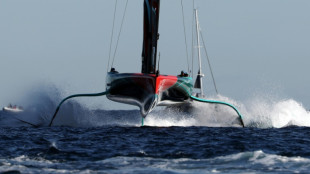
-
 Jesus could start for Arsenal in League Cup, says Arteta
Jesus could start for Arsenal in League Cup, says Arteta
-
EU to probe Czech aid for two nuclear units
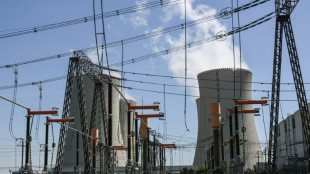
-
 Strauss says sacking Stokes and McCullum will not solve England's Ashes woes
Strauss says sacking Stokes and McCullum will not solve England's Ashes woes
-
Noel takes narrow lead after Alta Badia slalom first run
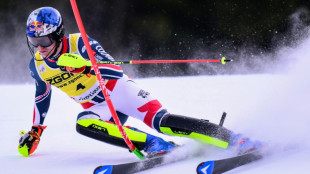
-
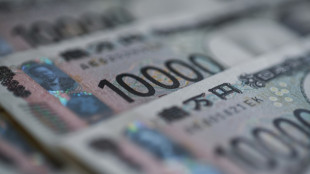 Stocks diverge as rate hopes rise, AI fears ease
Stocks diverge as rate hopes rise, AI fears ease
-
Man City players face Christmas weigh-in as Guardiola issues 'fatty' warning

-
 German Christmas markets hit by flood of fake news
German Christmas markets hit by flood of fake news
-
Liverpool fear Isak has broken leg: reports

-
 West Indies captain says he 'let the team down' in New Zealand Tests
West Indies captain says he 'let the team down' in New Zealand Tests
-
Thailand says Cambodia agrees to border talks after ASEAN meet
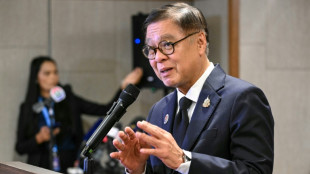
-
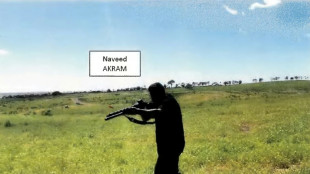 Alleged Bondi shooters conducted 'tactical' training in countryside, Australian police say
Alleged Bondi shooters conducted 'tactical' training in countryside, Australian police say
-
Swiss court to hear landmark climate case against cement giant

-
 Knicks' Brunson scores 47, Bulls edge Hawks epic
Knicks' Brunson scores 47, Bulls edge Hawks epic
-
Global nuclear arms control under pressure in 2026

-
 Asian markets rally with Wall St as rate hopes rise, AI fears ease
Asian markets rally with Wall St as rate hopes rise, AI fears ease
-
Jailed Malaysian ex-PM Najib loses bid for house arrest

-
 Banned film exposes Hong Kong's censorship trend, director says
Banned film exposes Hong Kong's censorship trend, director says
-
Duffy, Patel force West Indies collapse as NZ close in on Test series win

-
 Australian state pushes tough gun laws, 'terror symbols' ban after shooting
Australian state pushes tough gun laws, 'terror symbols' ban after shooting
-
A night out on the town during Nigeria's 'Detty December'

-
 US in 'pursuit' of third oil tanker in Caribbean: official
US in 'pursuit' of third oil tanker in Caribbean: official
-
CO2 soon to be buried under North Sea oil platform

-
 Steelers edge Lions as Bears, 49ers reach playoffs
Steelers edge Lions as Bears, 49ers reach playoffs
-
India's Bollywood counts costs as star fees squeeze profits

-
 McCullum admits errors in Ashes preparations as England look to salvage pride
McCullum admits errors in Ashes preparations as England look to salvage pride
-
Pets, pedis and peppermints: When the diva is a donkey

-
 'A den of bandits': Rwanda closes thousands of evangelical churches
'A den of bandits': Rwanda closes thousands of evangelical churches
-
Southeast Asia bloc meets to press Thailand, Cambodia on truce

-
 As US battles China on AI, some companies choose Chinese
As US battles China on AI, some companies choose Chinese
-
AI resurrections of dead celebrities amuse and rankle

-
 NextTrip Announces Pricing of Private Placement Financing of $3 Million
NextTrip Announces Pricing of Private Placement Financing of $3 Million
-
Namibia Critical Metals Inc. Receives Proceeds of $1,154,762 from Exercise of Warrants

-
 Shareholders Updates
Shareholders Updates
-
Applied Energetics Selected to Participate in Missile Defense Agency's Golden Dome (SHIELD) Multiple Award IDIQ Contract Vehicle

-
 Prospect Ridge Updates Diamond Drill Program at 100% Owned Camelot Copper-Gold Project in B.C.'S Cariboo Mining District
Prospect Ridge Updates Diamond Drill Program at 100% Owned Camelot Copper-Gold Project in B.C.'S Cariboo Mining District
-
The Alkaline Water Company Receives SEC Qualification of Tier 1 Regulation A Offering of Up to $10 Million

-
 Public Can Help Rid Oceans of Mines in New Freelancer Global Challenge
Public Can Help Rid Oceans of Mines in New Freelancer Global Challenge
-
Shareholders Update Report

-
 Tectonic Metals Drills 4.05 G/T AU Over 30.48 Meters, Including 8.84 G/T AU Over 13.72 Metres at Flat Gold Project, Alaska
Tectonic Metals Drills 4.05 G/T AU Over 30.48 Meters, Including 8.84 G/T AU Over 13.72 Metres at Flat Gold Project, Alaska
-
Switching Payroll Providers Won't Fix Past IRS Errors - Clear Start Tax Warns Business Owners About Lingering Liability

-
 Ovation Science Sees Expanded Opportunities for Its Topical Products Following U.S. Cannabis Rescheduling
Ovation Science Sees Expanded Opportunities for Its Topical Products Following U.S. Cannabis Rescheduling
-
PPX Mining Appoints Ernest Mast as President and CEO and Announces Stock Option Grants

-
 Rio Grande Resources Completes 2025 Field Program and Advances Drill Targeting at the Winston Gold-Silver Project
Rio Grande Resources Completes 2025 Field Program and Advances Drill Targeting at the Winston Gold-Silver Project
-
Eco Innovation Group (ECOX) Receives Strong Speculative Buy Rating from Harbinger Research Following Strategic Costa Rica Expansion

-
 DealFlow Discovery Conference Announces Panel on Microcap Deal Trends and Regulation for 2026, Featuring Richard Anslow of Ellenoff Grossman & Schole
DealFlow Discovery Conference Announces Panel on Microcap Deal Trends and Regulation for 2026, Featuring Richard Anslow of Ellenoff Grossman & Schole
-
EonX Announces Update To Loan Facility


How three dust specks reveal an asteroid's secrets
The specks are tiny. No, really tiny. Smaller than the diameter of a hair. But they hold billions of years of history that reveal some of the secrets of asteroids.
The three minute particles from an asteroid called Itokawa show some of these space rocks are vastly older than was thought, and are much tougher.
And that could mean we need bolder ways to prevent catastrophic collisions with Earth, according to research published Tuesday.
The three samples were collected in 2005 from the peanut-shaped Itokawa, some 300 million kilometres (186 million miles) from Earth.
It took the Japanese spacecraft Hayabusa five years to return them to Earth, along with hundreds of other particles from Itokawa, and scientists have been analysing them for clues ever since.
Fred Jourdan, professor at Curtin University's School of Earth and Planetary Sciences, wanted to see what the specks could reveal about the age of rubble-pile asteroids like Itokawa.
These form when solid asteroids collide and the resulting fragments assemble into new structures.
Solid asteroids are thought to have a lifespan of several hundred million years, and are gradually ground down by constant collisions.
But rubble-pile asteroids have a very different structure, composed of rocks, dust, pebbles and a void, and held together by the gravitational pull of their various components.
"It's like a giant space cushion, and cushions are good at absorbing shock," Jourdan said.
To find out just how good, the team analysed crystal structures in the samples, looking for deformations caused by the impact that created Itokawa.
And they dated the samples by measuring the decay of potassium into argon.
The methods suggest Itokawa was formed by an asteroid collision at least 4.2 billion years ago, ten times older than solid asteroids of similar size are predicted to be.
"We were really surprised," said Jourdan.
"I mean that's really, really old, and I'm sure some of my colleagues are not even going to believe it."
Rubble-pile asteroids are so resilient to the constant battering they face that they are likely to be much more abundant than previously assumed, the research published in the journal Proceedings of the National Academy of Sciences concludes.
That might mean we need new ways to tackle such asteroids on a collision course with Earth, Jourdan said.
NASA's recent DART test showed asteroids like Itokawa can be nudged off course, but that would likely require a lead time of several years.
An asteroid just weeks from colliding with Earth would require a different approach, and Jourdan argues a nuclear blast might be needed.
"It's not 'Armageddon'-style," blowing it up, he hastens to add, referring to the 1998 sci-fi movie.
"The shockwave should push the asteroid out of the way."
It is a far-reaching conclusion to draw from such tiny specks of dust, but each particle is analysed at the atomic level.
"We can get big stories like that out of (something) very, very small, because those machines, what they're doing, is the measuring and counting of atoms," Jourdan said.
"Every grain has its own story to tell."
M.Fischer--AMWN